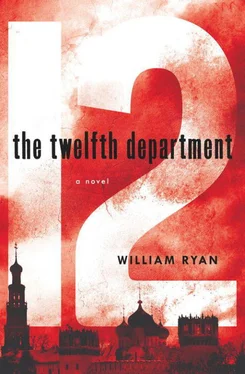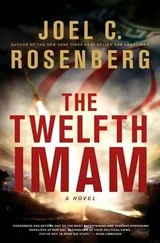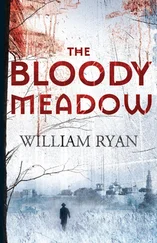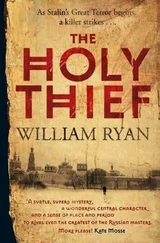“I can believe it,” Korolev said, strangely pleased that he’d spotted Blanter as a boxer, while at the same time feeling his guts trying to make their way down to his toes.
“Korolev, I want to make life easy for you. I’ve a proposal, a generous proposal. If you accept it—then, believe me, you’ll have a new friend. And friends like me can be useful in times like these. Of course, if you decline it—well—that would be a different story.”
The colonel gestured in the direction of the two Chekists on the other side of the street.
“Comrade Colonel?” Korolev said, reaching into his pocket for his cigarettes. “Do you mind if I smoke?”
It wasn’t that he wasn’t afraid, he was. But when a man’s afraid for a long time, Korolev knew, he begins to treat it as normality. And normality for him involved smoking cigarettes.
“Of course not. We’re going to be friends, after all. Aren’t we?”
Korolev found himself offering the Colonel the packet and, to his surprise, the Chekist took one, beginning to root around in his pockets for something to light it with before Korolev discovered his hand was now offering his matches as well.
“Thank you, Korolev, a busy night—I smoked the last of mine a couple of hours back.”
“I’m pleased to have the opportunity to assist you, Comrade Colonel,” Korolev said, thinking that cigarettes didn’t grow on trees.
Perhaps the colonel heard the reservation in his voice because he laughed, smoke coming out of his mouth as he did so—before reaching into the pocket of his tunic for a handkerchief to dab the sweat from his face, a smile still on his lips.
“Do you know why I want to help you find Professor Azarov’s killer?”
Korolev decided that the colonel’s question wasn’t one he could safely answer.
“Because,” the colonel continued, “it will stop you, and others, digging around in our affairs. Which would be better for everyone, wouldn’t it?”
“From where I’m sitting, I’d have to agree with you,” Korolev said—and something about that amused the colonel all over again.
“Well, if that’s your sincere wish—then I’ve something for you. Pass me that briefcase.”
Korolev did as he was asked and Zaitsev pulled from it a sheet of typed paper, which he inspected briefly before handing it over.
“This is a witness statement—evidence that establishes that there’s no direct connection between the murders and the institute. It was Shtange who killed the professor, so there’s a connection in that regard—but the reasons have more to do with personal animosity than science.”
Korolev found himself struggling to keep his amazement from showing.
“Personal animosity?” he said in a quiet voice.
“The professor denounced Shtange as a saboteur, maliciously, so the good doctor killed him in revenge—or perhaps self-defense, if you consider the likely consequences if he’d been arrested on basis of the professor’s accusation. It doesn’t matter, either way, now they’re both dead.”
Korolev read the first few lines of the document, before glancing back to the top of the page to find out who’d provided this helpful information.
“But this is Priudski, the doorman. What did he have to do with it?”
“Shtange promised him money to let him into the professor’s apartment on the morning of the murder. Shtange then refused to pay him, so Priudski went to his apartment to confront him. When the doctor still wouldn’t pay up, he stabbed him. It all turns out to be very straightforward.”
Korolev read the statement and it was as exactly as the colonel said. At first glance, there was nothing obviously wrong with it—the signature was clear and firm and it was in the correct format. Of course, it was typed, which was unusual for Militia witness statements—but perhaps not for State Security. And perhaps its coming from the NKVD accounted for the fact that the paper was of surprisingly good quality, white and crisp to the touch. In Korolev’s world, statements were written on thin brownish paper that sometimes looked as if it had been an active participant in the interrogation. He’d opened files to find statements that had been smudged by what might have been sweat, or even tears—and sometimes other substances as well. His instincts told him this statement was too well written and too tidy. And then, of course, there were the anomalies in the story—anomalies that couldn’t be just winked away, either.
“Where’s Priudski now?” Korolev asked.
“Where you would like him to be?” the colonel said, and seemed pleased with Korolev’s reaction. “You seem surprised—why?”
Korolev’s hunch, after reading the statement, had been that Priudski was dead. That the doorman was available for questioning was indeed a surprising development.
“No reason in particular. Of course, it would be usual procedure for me to interview any witness whose statement we relied upon.” Korolev spoke carefully—he wanted to sound as if he were going along with Zaitsev’s proposal, but he also wanted to give himself some breathing space. Rodinov had been right, he’d have to play this game for himself now—and he needed time to think.
“You see,” he continued, “Colonel Rodinov won’t be satisfied with this statement just on its own. I’ll have to present him with a completed file—every full stop in the right place, every page numbered.”
“Priudski will back up the witness statement, and you may question him as you see fit. I’m aware that Rodinov will need to be fully satisfied by your conclusions. I know the colonel well.”
Korolev didn’t need to have been involved in Professor Azarov’s telepathy experiments to realize Zaitsev didn’t have loving feelings toward his Chekist colleague.
“And custody?”
“Priudski will remain in the custody of the Twelfth Department, the two dead men were ours.”
It seemed this was a point that wasn’t up for negotiation.
“We still haven’t spoken to all the persons we need to,” Korolev said. “I won’t be able to rely on the statement alone.”
“Speak away, as long as we agree on the outcome. You’ll need these.” Zaitsev handed him a sheaf of photographs of Priudski, as well as a fingerprint card. “I shouldn’t be surprised if Priudski’s prints show up at Dr. Shtange’s apartment.”
Korolev looked at the black smudges on the card and read the date beneath them—yesterday’s—and the location where the card had been filled out—“Internal Prison of the NKVD, Moscow—Butyrka.”
“It sounds as if the case is solved,” Korolev said, but he didn’t like the sound of it much.
Zaitsev nodded, closed the briefcase then tapped the confession Korolev was still holding.
“You can keep this. Listen to me, Korolev, and listen carefully. You have a reputation and it’s an admirable reputation in many ways. It’s said you get the job done, no matter what the risks or the obstacles. They tell me you follow the trail to the end. All of that might be very good when you’re hunting bandits or hooligans, but this is a different matter. Know your limitations. I want an end to this investigation within forty-eight hours and I don’t want any cleverness out of you. Just so you understand me.”
“It should be possible,” Korolev said. “I’ll do my best. But Colonel Rodinov is the one I report to.”
“Forty-eight hours, Korolev,” the colonel said in a voice that was as cold as a snowstorm in Siberia. “And there’s something else.”
“I’m at your command, Comrade Colonel.”
“There is a report, prepared by Dr. Shtange. About the institute. I want it.”
Korolev did his best to look as though this was all news to him. It was difficult, under the colonel’s intense examination, but he thought he managed it well enough.
Читать дальше












